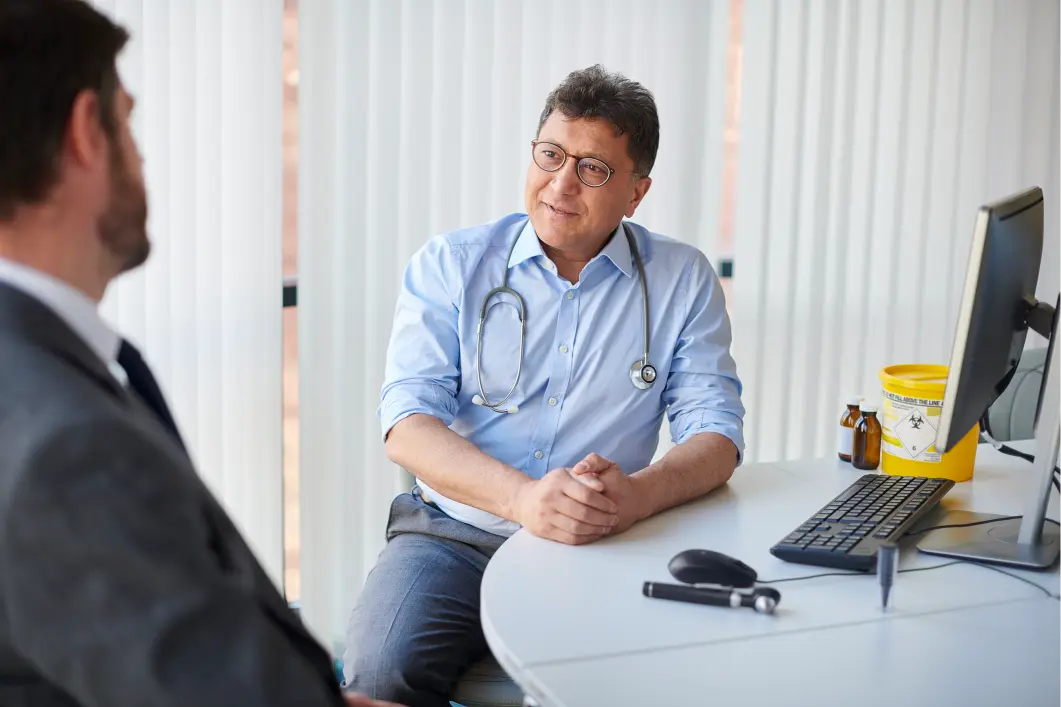LivingCare Group brings laboratory-grade male fertility testing into the home through Sapyen partnership
Feb 12, 2026
Published on
24/11/2025


The LivingCare Group




Being invited for intimate investigative and diagnostic tests can be daunting. Not only might you feel anxious about the result, but you are also worried about the procedure itself. For some, the fear of the test is enough to make them avoid it altogether.
At LivingCare, we know early diagnosis can be the difference between treatable and terminal. Figures show that in the UK, bowel cancer is the fourth most common cancer, with over 44,000 people diagnosed annually[1]. When bowel cancer is found at stage 1, around 90% of people survive the cancer for five or more years. If the cancer is found at stage 4, around 10% of people survive for more than 5 years. With bowel cancer, early detection saves lives.
Cancer concerns aren’t the only reason why you may be invited for a colonoscopy. A colonoscopy can diagnose Crohn’s disease, diverticular disease and ulcerative colitis. For a complete diagnostic picture, a colonoscopy is often performed alongside other tests such as blood tests, stool analysis, biopsy and scanning.
Colonoscopies are a standard procedure. In 2023-2024, the NHS Bowel Cancer Screening Programme carried out a total of 92,053 colonoscopy fitness assessment appointments[2]. This data is purely from the programme and doesn’t include the many more tests in the NHS and private clinics, making the true number of annual procedures much higher.
Colonoscopies are the gold standard in screening for colorectal cancer and other bowel conditions. The test lasts 30-45 minutes, and could be life-saving. However, people still avoid colonoscopies. We explore the reasons why people might decline or delay their appointment.
Fear of medical scans is so prevalent among patients that it has its own term, ‘scanxiety’. Scanxiety refers to any scans or medical testing. For some, it may be the fear of the test itself causing the anxiety, for others, it could be concerns over the results.
The best way to manage scanxiety is to let your healthcare team know. The LivingCare team will walk you through the procedure so you understand what will happen and how you need to prepare. If you feel too anxious about the test, you can discuss sedation with your healthcare provider.
A colonoscopy is different from other scans. You have to prepare yourself a few days before the test. Two days before, you should eat plain foods like plain chicken, pasta, white rice or bread. The day before, you need to drink laxatives to empty your bowels ahead of the test. The laxatives may not be pleasant, but if you make sure you stay home after you start drinking the laxatives, you should feel more comfortable.
The LivingCare team will provide you with all the information on what you should eat and what to avoid in the lead-up to the colonoscopy.
The procedure isn’t performed under general anaesthesia, and you will be awake throughout. If you are concerned about pain or discomfort, discuss painkillers and sedation with the healthcare provider. A sedative will make you feel relaxed and a little drowsy, but still awake. There may also be an option to have gas and air (Entonox) if suitable.
It’s not uncommon to feel embarrassed about the test. In a European study, 43% of colonoscopy-experienced respondents said they would still be embarrassed about having another colonoscopy. However, 59% said the experience was better than expected. Raising any concerns with your healthcare team should help you feel more comfortable.
Colonoscopies effectively screen for colorectal cancer. Data from the US Centres for Disease Control and Prevention states that 68% of colorectal cancer deaths could be prevented with increased screening. These statistics show how important the screening can be for saving lives.
At LivingCare, our gastroenterology specialists understand the fear and concerns that come with a colonoscopy referral. With clinics in Leeds and Sheffield, we provide rapid access to state-of-the-art diagnostic procedures, consultant-led care, and reassurance. We take the time to hear your worries and give you peace of mind ahead of the procedure.
[1] https://www.bowelcanceruk.org.uk/about-bowel-cancer/bowel-cancer
[2] https://www.gov.uk/government/publications/bowel-cancer-screening-annual-report-2023-to-2024/bowel-cancer-screening-standards-data-report-2023-24